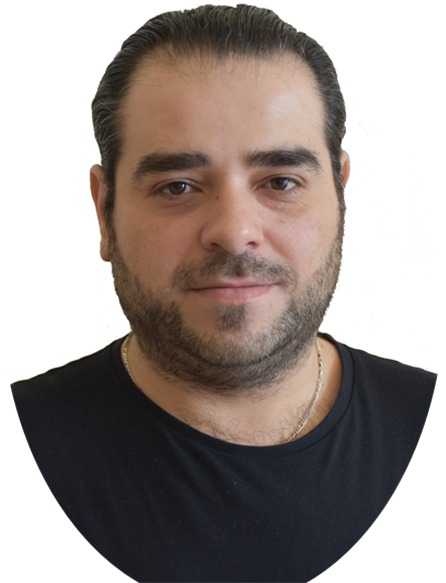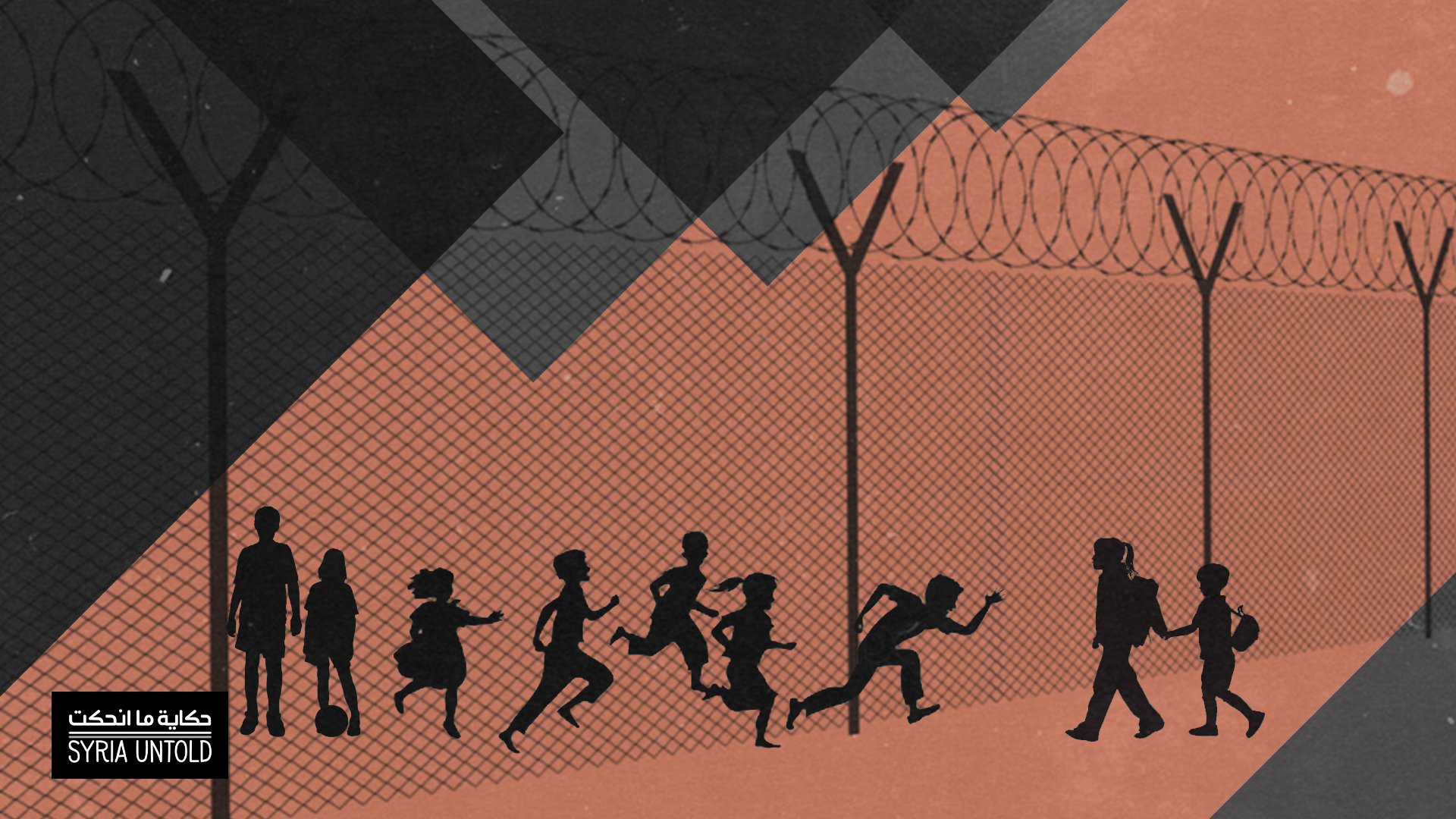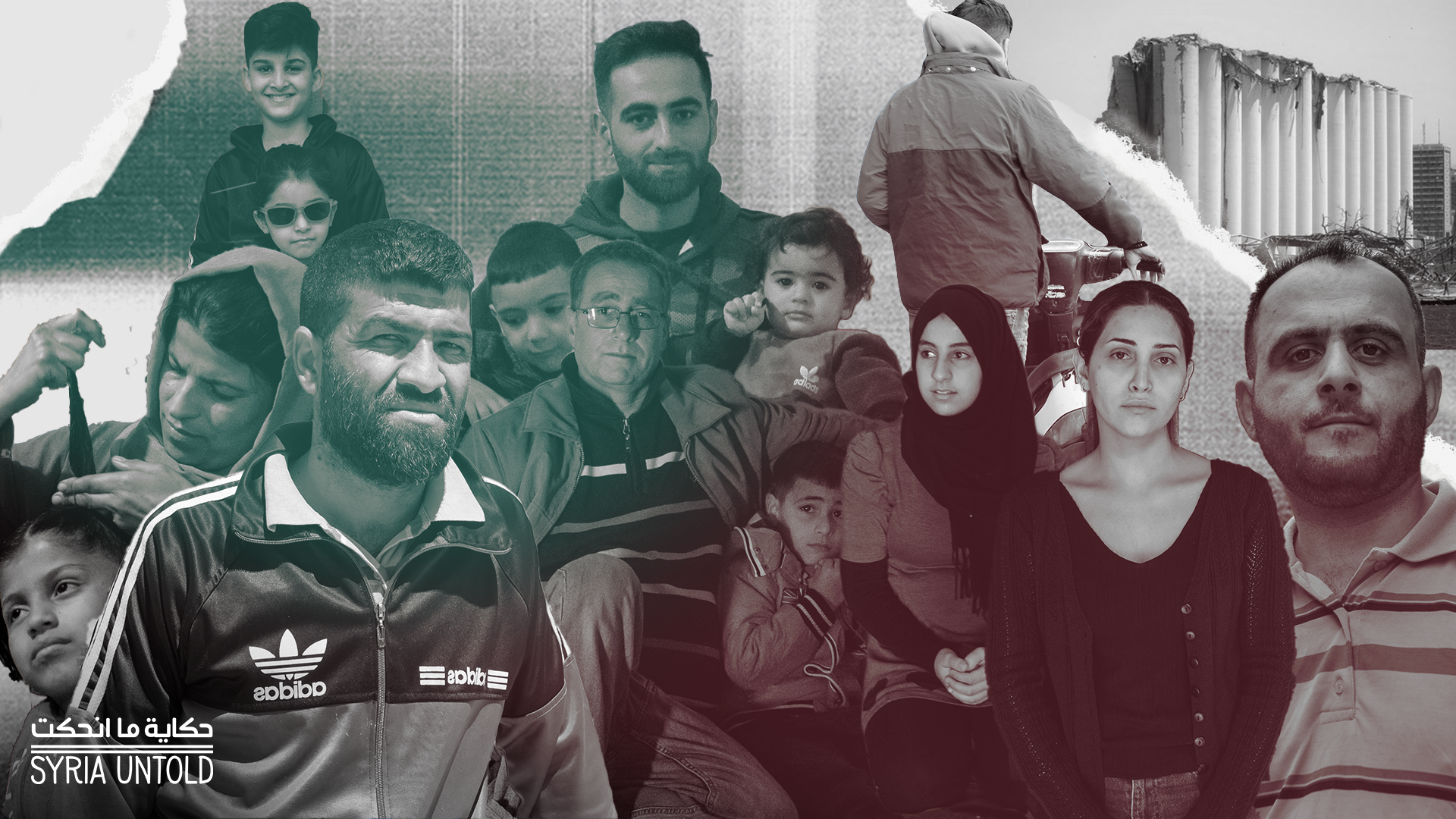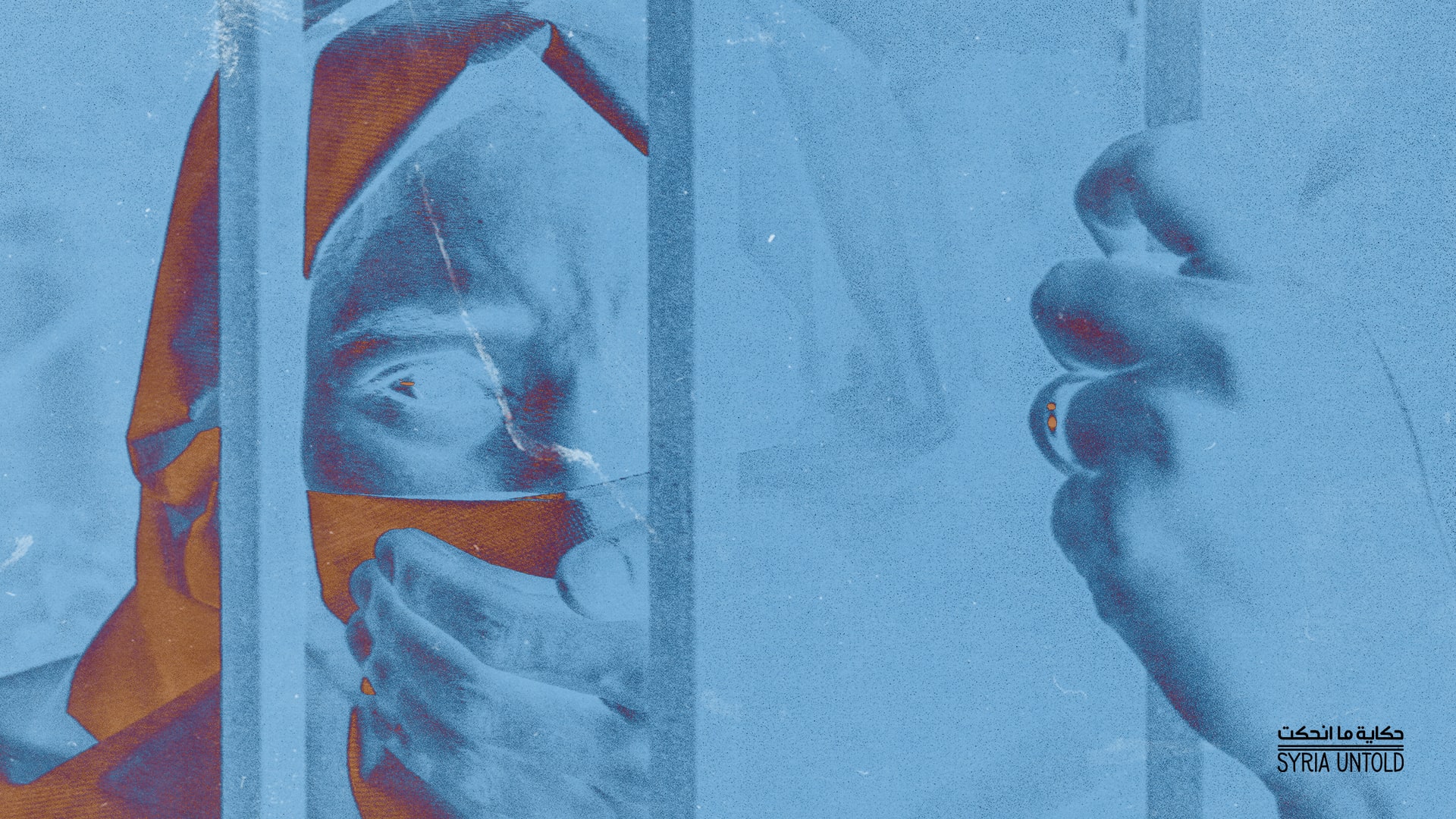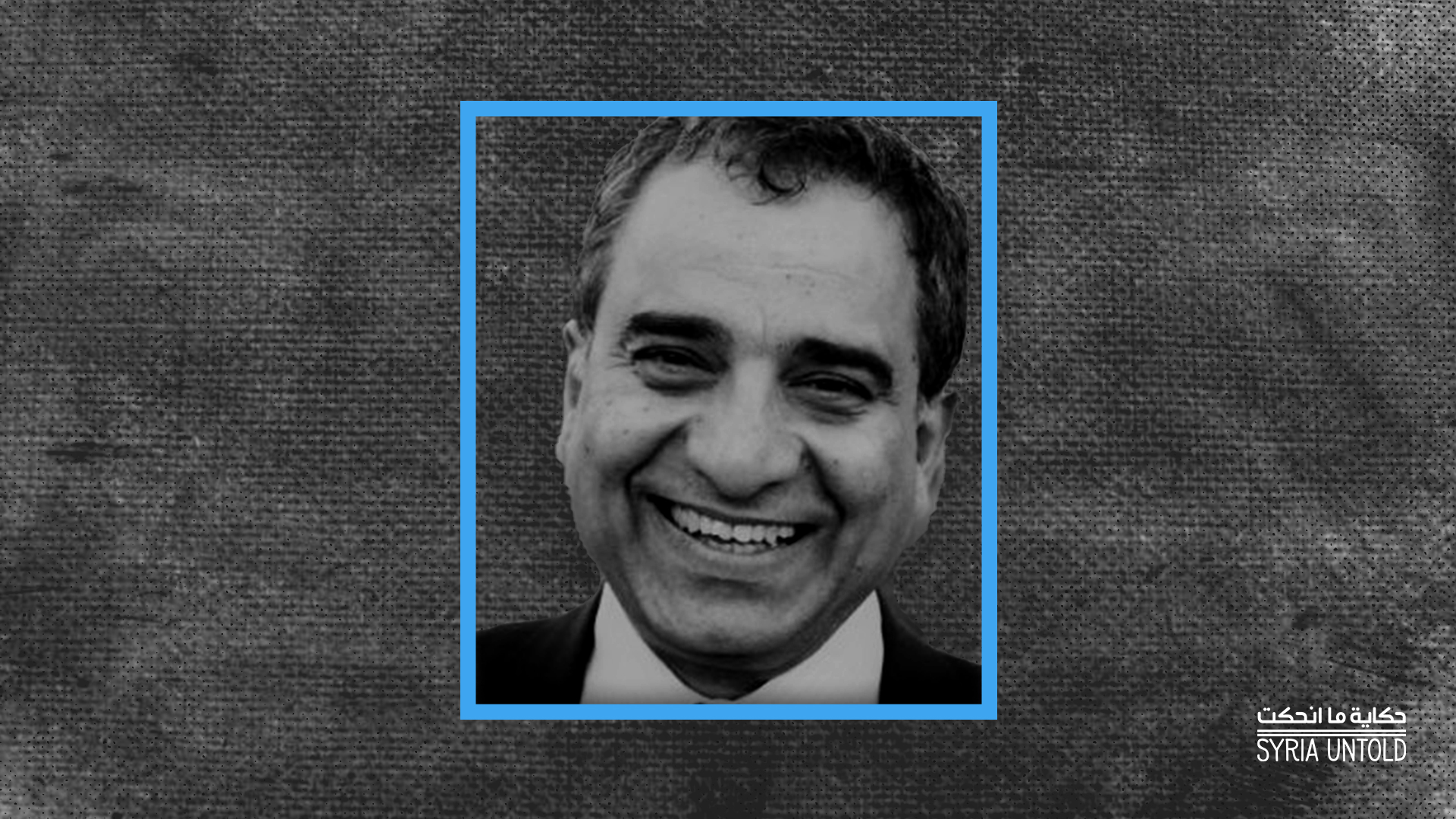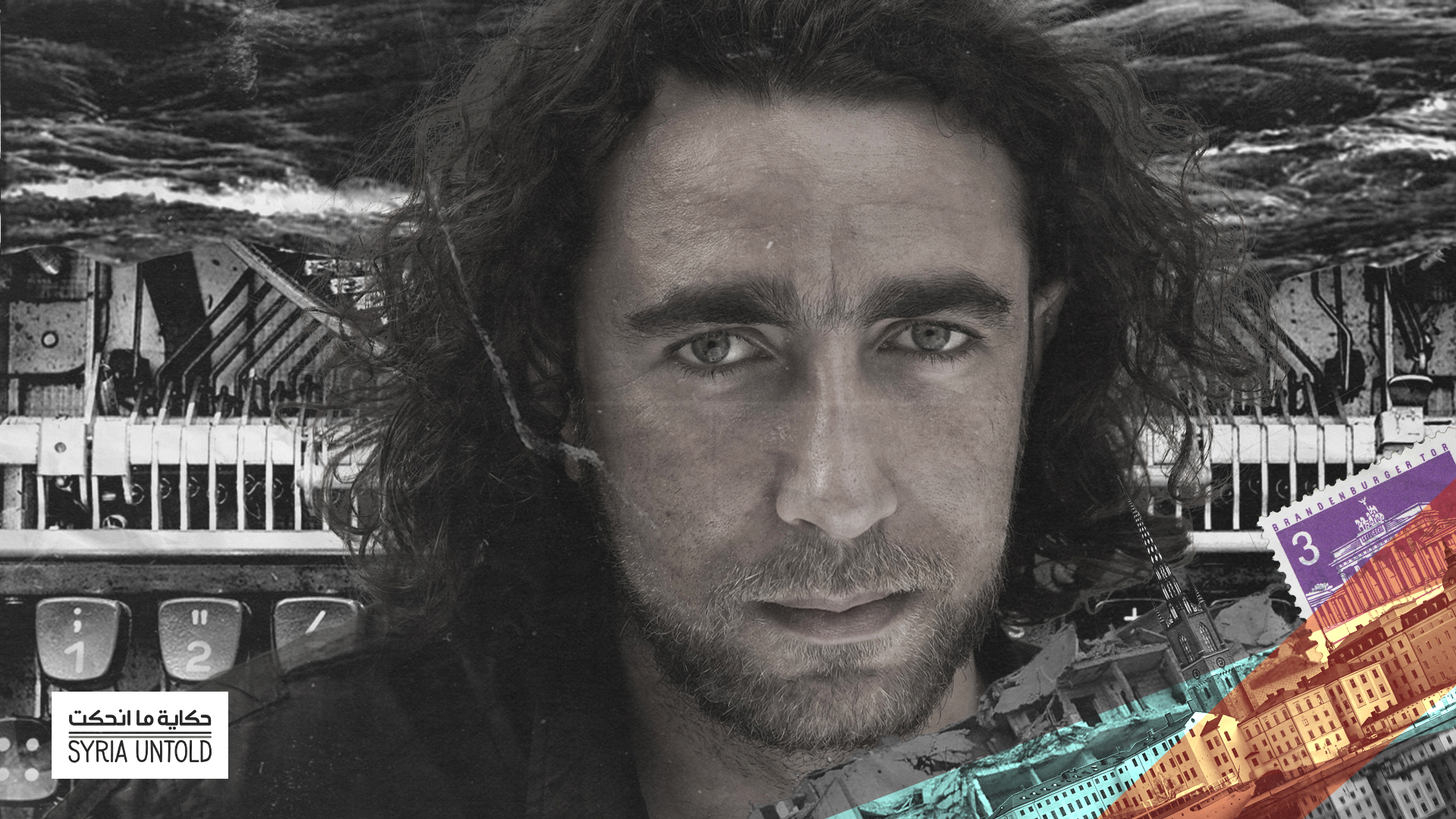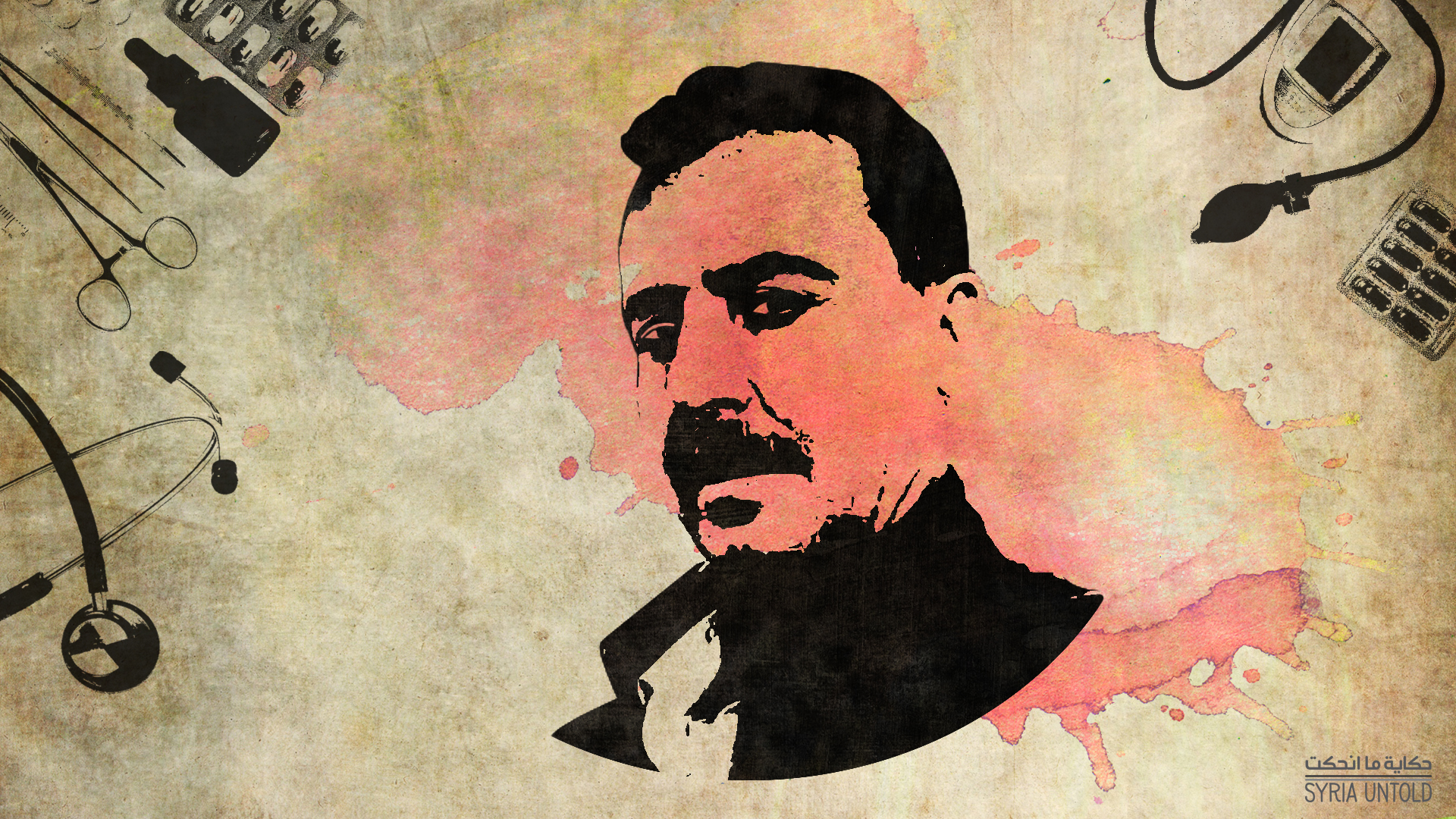SyriaUntold first published this interview in Arabic in July 29th 2022. Read this interview in Arabic here.
July 29, 2022
Today marks the ninth anniversary of the kidnapping of Father Paolo Dall'Oglio by the Islamic State (ISIS) (2013), more than a year after the Syrian regime exiled him from Syria (2012) where he had lived for thirty years and founded the Monastery of Mar Musa al-Habashi near al-Nabk, central Syria. To this day, the fate of Father Paolo remains unknown.
Father Paolo, a priest in the Syriac Catholic Church, was known for his humanitarian activity and non-violent struggle for peace. He was proclaimed for his tours, interchanges, encounters and meetings at the beginning of the Syrian revolution aiming to reconcile opinions and mediate between the parties, helping the revolution launched in the country reach its goals of freedom, dignity and peaceful democratic transition.
At the end of 2012, Waseem Hasan met Father Paulo on the sidelines of one of the opposition conferences and recorded a press interview with him of which only partial segments were previously printed. Today we publish the entire dialogue divided into sections. Each section is an answer from Father Paolo Dall’Oglio to one of the questions related to Syria. At the end of each written section, we publish the answer recorded in the voice of Father Paolo, as a historical testament to the vision of one of Syria’s most prominent non-violent fighters in the last fifty years.
On choosing to live in Syria
First, it’s worth mentioning that Syria is an integral part of the Holy Land. For me, the Eastern Mediterranean is the entire stage of Lord Jesus’ life as well as that of the birth of the Church and its spread. In Syria, I do not feel at all far from the Holy Land. Then, Syria has its own mystical spiritual side. It looks at Jerusalem with piety and, at the same time, testifies throughout its land to the value of humanity and civilization, to the kind of civilization an educated spiritual human can create. Syria has been considered to be the geographical, historical, cultural and religious axis between the Mediterranean and Asia, between the north and the south, between Christianity and Islam. It even includes an important Jewish presence, which one day will need peace, reconciliation and a return to truth and justice, a restoration of this brother under the roof of Abraham. I consider Syria to be the Syria of Abraham, it is the Syria of the prophets, and I am at ease here. I mean, Syria has been a part of my life for the last thirty years.
On sectarian and ethnic diversity in Syria
Diversity, difference, and plurality: this is the lot of the whole world. There is no country seeking to be developed, no modern, open, successful country, without pluralism, diverse colors, shapes, and harmony between people of different traditions. This is the lot of civilization and modernity. In this sense, Syria has been a symbol of civilization and modernity for three thousand years. Syria has been diverse since before Christ. It symbolizes cultural encounter and mingling, after trade, travel, proximity and neighborhood. In this sense, Syria is the pioneer. Whoever conceives of a monochromatic Syria is a complete traitor to the homeland.
Speaking of Syria and the West
I have been around for twenty years at least, and in my opinion, the greed and immorality of the foreign capitalist regimes makes them deal with dictatorships according to their own interests, in total disregard for the right of peoples to freedom, democracy and political growth. It is easy to make excuses. I’ve always said: shame on you. You conspire with these regimes in the exploitation of their people, as they drink the blood of their people and vomit it in your banks. Even international and development aid and so on, in most cases, end up in the pockets of officials who devolve it to Western banks. This logic has held us back, with dictatorial regimes benefitting from the capitalist conspiracy to consolidate and strengthen their control over the peoples. The unreasonable delay in the Syrians’ attainment of their freedom is a witness to that. I mean, this regime deployed all means possible to create an impenetrable fortress against the rights of its people! This is only possible due to international conspiracy, and it is not the ridiculous conspiracy that Bashar al-Assad is talking about, but the real conspiracy of mutual interest between the regime and everyone who has entered into an exploitative partnership with it.
Syria, Ukraine and bonding over activism
13 August 2022
In Assad’s Syria, school is prison
18 November 2021
On violence and self-defense
It is a very painful dilemma and contradiction, and the most severe accusations have been leveled against me in more than one assembly, and in several countries. But if we look at the matter closely, there is no contradiction between the necessary initiatives based on the theory of non-violence in which I believe, diplomatic initiatives that do not stagnate such as has been the case with regard to Syria in the past months, and humanitarian initiatives that try to mitigate the dire consequences of the current movement and conflict on the one hand; and the right of a people to defend itself on the other. The Syrian people traversed irreversible stages in its demands of democracy and dignity. This is the people's decision, and it is their right to defend themselves. This is something that heavenly laws, philosophy, science, and logic acknowledge, because if it were not like this, surrendering to a tyrant would be a universal rule, and this is not permissible. I mean, even Gandhi would not accept this. The people defend themselves and they have to be morally disciplined, because we cannot copy the methods of the regime. We do not have the right to torture people; we do not have the right to kill based on identity; we do not have the right to kidnap people. A war for rights is unlike a war of oppression. We demand as of this moment - and this is part of the revolution - the formation of committees against war crimes and crimes against humanity.
On the civil war
I have been warning about the civil war since June 2011. I have alerted the diplomats, and I was expecting it earlier. The regime organized itself based on a kind of control over minorities by intimidating them, creating the discourse that any alternative would be a fanatical, extremist and takfiri Islamic one. Therefore, there is no alternative for minorities but the regime. And this is exactly what happened. People have become hostages of the regime, and until today, they are slowly done away with by any means possible. Most of them emigrate. Christians escape through emigration. For the Alawites, it is more difficult to emigrate because they do not have external connections, so they return to their mountains, but for how long?
I mean, they put their people in the villages and ask them to keep fighting until the last breath. This is what al-Assad did, and for that, history should hold him accountable.
The regime counted on solidarity between the communities and the Alawite villages as a small circle for decision-making and a way to saddle the nation. This does not mean having only Alawites in power. It is well-known that there were Sunnis, Christians, Druze, etc. but the circle of solidarity between minorities was a closed one. The conspiracy of trade and common interests with the Sunnis was particularly obvious.
There was a time when the authoritarian structure was ruling over most Syrians. Most of the Syrians were, in one way or another, forced to accept it. But the time for freedom, for revolution, for liberation, has come. The time for the Syrians’ freedom has come, and we paid a much higher price for it than others. We accept our fate, what can we do?
Now our Alawite brothers and sisters are experiencing a terrible rupture. The honorable Alawi brother who ended up imprisoned or marginalized by the government and the regime because he is not aligned with these policies, find himself between two fires: On the one hand, he is vilified for being an integral part - even if against his will - of a family, a faction, that is considered to have waged war against the Syrian people, On the other hand, he is opposing the regime. Thus, self-control by the revolution is required. Arab support of the revolution is required. The assistance of the international community is required. The international community has neglected its responsibilities. The Arab community has neglected its responsibilities, Russia and Iran have waged war against the Syrian people instead of helping the Alawites accept a reasonable way-forward, within a reasonable program, within a reasonable agenda, in order to reach the handover of power to the Syrians while preserving geographical specificities. What is the problem if, for example, the governorates of Latakia and Tartous maintain a predominantly Alawite local administration? If the province of Hasaka has a predominantly Kurdish rule? If Deir ez-Zor has a Bedouin one? If As-Suwayda has a Druze one? Where is the problem? I mean, many developed and successful countries (adopt) federalism.
On the Inter-Islamic competition
Today we are witnessing a rift, a competition, and dare I say, some political movement amongst the Muslims themselves. The Islamic project differs within the different islamic circles. There is Erdogan's project, Morsi's project, Libya’s project, Tunisia’s project, Algeria’s project, Mali’s project, Khartoum, Hamas’ project...etc. They are all Muslims. The Palestinians of Fatah are Muslims, but their concept of Islam and the state is different from that of our brothers and sisters in Hamas. I believe that, within a pluralistic democratic system, there is a great opportunity for the various Islamic currents to work out their experiences, try and apply their projects, requirements, wishes and desires, and face an evaluation. Elections every four or five years are a popular assessment. One might say: this interpretation of the Holy Qur’an suits us, and God willing, will bring success. Another might say: No, this concept of Sharia sources does not fit the times, nor does it suit our demands and aspirations. We tend to have another interpretation. Thus,if we were able to consolidate democracy, the discussion amongst Muslims would be had without a sword. We don't want to go back to the Battle of the Camel. Every time we disagree, we kill each other? No, enough of that. I mean, the (conflict) settings have become lethal, and the consequences dire. It is not like we fight each other for four days and then we reach an agreement. This is not the case.
On Christians
Christians are dispersed in every region of Syria. For example, in Homs, some christians live among the Sunnis, some amongst the Alawites, some are in the neighborhood of the Bedouins… Whenever there is sectarian tension, whether Sunni-Shiite or Sunni-Alawite, the Christian must be the engineer of reconciliation and fraternity, the connecting thread. Unfortunately, we were not able to achieve that in Iraq, Iran or Lebanon, perhaps because the movement is very complex and surpasses our capacities, and we do not have the culture to do this work. In fact, most of the Christians are emigrating from Syria. Today, the movement was unreasonably long and the losses unreasonably great. All this causes a large number of Christians to emigrate.
On his role in the movement
I play an intellectual and a dynamic role. I deeply care about civil peace. I am ready to serve civil peace. I'm ready to go to the Assi river and stay there until I either drown or you pull me out once you’ve reached an agreement amongst yourselves. I would do that without a second thought. The Alawites are dear to my heart, just like the Druze, just like the boys who fought with bin Laden. I consider them all my children, I care about them. We want to get them out of the hells of violence, from the crucible of violence to the paradise of harmony and understanding. I dedicated my life to this. I prioritize reconciliation amongst Christians exactly as much as I do reconciliation amongst Muslims themselves.
We can make no distinctions when it comes to love amongst people. I even care about the reconciliation between North and South Korea. If I could go to reconcile the Koreans with each other, I would. But we cannot be everywhere. Is this a political position or a religious position? For me, this is religion itself.
Two years on, Syrians injured in Beirut port blast drown in neglect, medical debt
03 August 2022
Syria’s lucrative detainment market: How Damascus exploits detainees’ families for money
13 April 2021
On socialism, democracy and the mafia
Manifestations of sectarian tension... There was a time when the Alawite sect was the military guarantee of Hafez al-Assad's presidency, with a sectarian structure that still had a socialist, sectarian ambition. There was a project of a society developing through socialism. It kind of had no sectarian value. This is over. With the fall of the Berlin Wall, we should have progressed towards democratic rights without losing what we had gained through socialism. However, we lost socialism and democracy and turned to mafias under the pretext of liberal freedom, but this is not liberal freedom. This is military control used to garner capitalist control over the country through the alliance between the presidency and the beneficiary parties. And the country turned into a mafia. This is a mafia system. Capital and military power.
On Arabism
I still put my trust in the Syrians, in the depth of their civilization, in their concept of Islam, of Christianity, and of Arab civilization as a civilization of harmony. For me, Arabism is a ceiling, a shelter. I can’t think of Arabism as being against the Kurds or the Berbers or whomever. To me, Arabism is the aggregating position associated with the Holy Quran. It does not conflict with the local cultural civilizations. This is what allowed the expansion of the Arab ring from the ocean to the Gulf. Because it does not deny, ignore or destroy the local fabric or its values. The same is true of the Kurds, who have always been an element of a mature Islamic society. That is why I am fully confident that Syria will come together as a mature, pluralistic, democratic country, and it would be the beginning of a wider process. I mean, the Syrians sacrificed and sacrificed.. .a sacrifice so big, it would be unreasonable to think it would benefit them alone. They will raise the region as a whole: Iraq, so that it is not completely disintegrated; Iran, for a Shiite-Sunni rapprochement; the Gulf through reconciliation; Lebanon, so it does not end up even more fragmented than it is now; Palestine, so we could reach justice, harmony and accord for this region as a whole.
I think we have the cultural and spiritual momentum.
On what awaits Syria
All obstacles await Syria. Because the Western community did not want to seriously negotiate with Russia and Iran to find a reasonable solution, because Iran is still stubborn in its demand for its share. Because the Kurdish brothers have a desire to take advantage of the opportunity, because Israel is not an idle spectator and has an interest in fragmentation, because the Sunni brothers are riding a wave which to them represents a good opportunity to realize an old ambition. Everyone wants to eat the whole cake. I mean, the cake is good when it tastes of harmony, friendship and love, and then we could say: happy birthday, Syria, you’ve come back to life.
On the form and mechanisms of reconciliation
One form is not enough, we will need a hundred forms. We need to protect the victims from themselves so that they do not set out to seek revenge, which in turn would cause them an indescribable moral wound. There must be international and local courts against criminality. This is necessary, because the loser cannot be surrendered to injustice. Later, we need to reach some form of forgiveness for those who were commanded servants, but those responsible must be tried and those who suffered loss must be compensated. We will need committees to compensate widows, orphans, those with ruined or looted homes…. This all needs to be done. We must do the work. We need competent organizations to treat the victims of violence who were tortured, those who lost their minds, separated children, widows and raped women. The Syrian people has been victimized in its totality, and Syria must become a merciful hospice to heal this country, to heal the people. Today, in Syria, Everyone is sick; and we need to heal each other.
On the role of the Alawites in Syria after the fall of the regime
I hope with all my heart that they will turn against Assad in their villages, join the revolution and welcome the rest. Stop right there. We go to the courts. Bring out the files; we will hand the criminal over to you. At that time, they might say: we demand a decentralized administration so that we feel that we are the recognized entity in our villages. Syria would be for all Syrians if it were for all Syrians in each and every part of its land. I mean, we have a miniature Syria in the northeast according to the Kurds. We have the city of Aleppo, bringing together all kinds of Syrians, same in Damascus. In every part of Syria, we must consolidate civil peace, pluralism and democracy. We must not copy the Lebanese model, divided as Maronite, Sunni, Shiite or Druze in whatever situation, even in football. No. We want a harmonious demography. The harmonic demography formula is what suits us.
On the fear of Christians in Syria
The Syrian Christians feel the danger, and as a proof of that, they are fleeing. In some places, it is dangerous. if there are air raids, how could it not be dangerous? If there is artillery bombardment, is it not dangerous? If there is a street war, is it not dangerous? I mean, a person just wants to save himself and his children. He feels that this is a conflict between Muslim Syrians and it does not concern him, so he keeps out of it.
The Vatican, through the papal ambassador in Damascus, made it clear that it does not consider this conflict to be a persecution of Christians. However, it has noted that Christians are exposed to circumstances that no one can tolerate.
On aid
I hope, I ask, and I demand that this time, the West does not treat us like it did Iraqis. We want for Syria to be treated with solidarity and love. Europe is experiencing a major economic problem, so we cannot await large material aid from abroad. God willing, well-off Syrians abroad will come to help us because we want financial assistance from every financially-blessed Arab or Syrian friend and from every conscientious person.
Without stable democratic security for all, the situation is dire.


